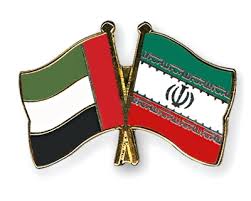 DUBAI, April 14 (Xinhua) -- With the International Monetary Fund (IMF) upgrading its outlook for the Iranian economy, the already booming United Arab Emirates (UAE) is poised to get a further boost from an expected increase in trade with the Islamic republic.
DUBAI, April 14 (Xinhua) -- With the International Monetary Fund (IMF) upgrading its outlook for the Iranian economy, the already booming United Arab Emirates (UAE) is poised to get a further boost from an expected increase in trade with the Islamic republic.Last Friday, the IMF managing director Christine Lagarde said Iran's economic development was "very positive and promising," following her meeting with Iranian central bank governor Valiollah Seif.
In its latest world economic outlook report, the IMF said Iran will emerge out of recession in 2014, after a 1.7 percent contraction last year.
Since the six world powers and Iran agreed on ending the over a decade-long dispute over Iran's nuclear program, the UAE government and businessmen have expressed optimism that the once thriving trade relations between the two Gulf states will see the "good old days" again.
Both the UAE and Iran are major oil suppliers and members of the organization of oil exporting countries (OPEC). Earlier last week, the IMF revised the gross domestic product growth forecast to 4.4 percent for 2014, slightly down from 4.5 percent it predicted in February this year.
Bilateral trade between the UAE and Iran once hit 9.81 billion U.S. dollars but fell in 2012 to 6.81 billion, according to the UAE ministry of economy.
UAE minister of economy Sultan Al-Mansouri said back in January his country would be the first to benefit when sanctions on Iran are lifted completely. Sectors to benefit from the trade boom will also include logistics, tourism, banking and green energy.
According to the Dubai-based Iranian business council, there are over 200,000 Iranian nationals and 7,000 Iranian firms in Dubai.
So far sanctions against Iran were only partly lifted for a limited period of time in order to give Iran time to prove that it would curtail its nuclear energy scheme. The five permanent members of the United Nations Security Council plus Germany, the P5 plus 1 group, and Tehran are still negotiating on the details for a full lifting of sanctions.
Meanwhile, United States aircraft producer Boeing and technology giant General Electric have received permission from the U.S. Treasury Department to deliver spare parts to the chronically out-dated civil aviation industry of Iran.
Last Wednesday, Russian deputy foreign minister Sergei Ryabkov told state news agency Itar-Tass the P5 plus 1 group could reach a comprehensive agreement by July 20.
Switzerland's biggest bank UBS told monthly Swiss magazine " Schweizer Bank" it was following "with great interest" and would check at a later stage if it should readjust its business practices with Iran.
The modernization of Iran's oil industry, partly crippled by four rounds of UN sanctions and a number of unilateral sanctions by the U.S. and the European Union, needs massive financing, including from foreign sources.
Iranian oil minister Mehdi Hosseini put the estimated financing needs for the oil sector in the next five years at 150 billion dollars, a situation that will also benefit many international banking corporations.
By Xinhua
The Iran Project is not responsible for the content of quoted articles.










